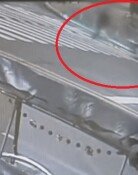[Editorial] Irregularities in college entrance
[Editorial] Irregularities in college entrance
Posted December. 20, 2000 19:25,
It was recently revealed that some students and their parents were abusing a system under which students who returned home from long-term overseas studies at foreign universities or colleges were given preferential treatment in enrolling at local schools.
As of Wednesday, a total of nine students were found to have entered five universities through illegal means. As the prosecution is still investigating the situation, further illegalities may be found.
In all nine cases, the students involved were found to possess forged entry-exit certificates, elementary, middle or high school diplomas, or academic transcripts. Some of the students had never even studied abroad or been admitted into foreign schools.
Under existing rules, only those who have completed 12 years of school overseas are eligible for preferential admission to domestic universities. The recruitment process for these students is separate from that of students who may have studied abroad for years but been chosen through competitions within the prescribed quotas. Hence, the former screening process leaves room for irregular or illegal college entry.
Prosecutors revealed that large-scale cash deals between brokers and parents were part of the scandal. Moreover, probability is high that many people or even organized rings were involved in the irregularities.
It is deplorable that even the educational sector is plagued by financial wrongdoing. This particular case reminds us once again how deeply problems of corruption have permeated Korean society.
Not surprisingly, the parents whose children were admitted into colleges on false pretenses turned out to be wealthy. Their belief that wealth entitles them to commit wrongdoing is not the kind of lesson that Korean students should be learning.
What will be the future of those children who graduate from universities through the misdeeds of their parents? Perhaps they will have to lead their whole lives with lingering compunctions. Lurking behind the college entry irregularities is the Korean people's excessive emphasis on academic credentials and high social position. As long as the prevailing tendency is to hold graduates of prestigious universities in the highest regard and offer them preferential treatment, these students and their parents will be tempted to maintain their corrupt activities. Korea needs to establish a system under which success is based on ability and hard work rather than academic or family background.
The prosecution should conduct a thorough investigation of the case in order to shed even further light on the scandal. At the same time, prosecutors should conduct probes of other special college entrance systems and the Education Ministry and local school authorities should offer them the utmost cooperation.
Also needed is a new system under which the current special screening process, based on the examination of relevant documents, is supplemented with additional tests such as interviews or written exams.







